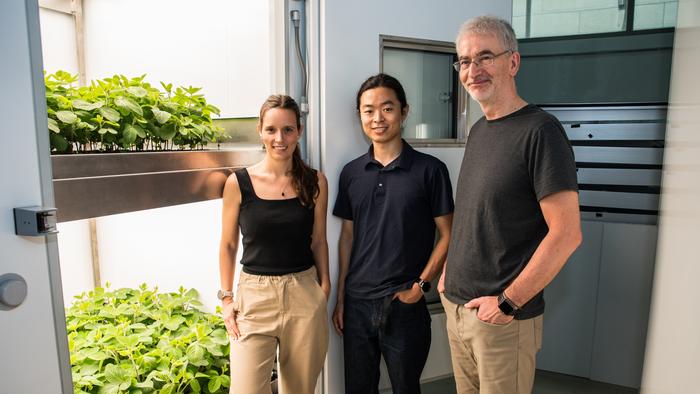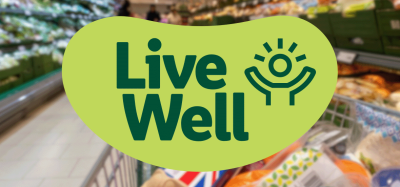Vertical farming could be key to future protein supply
Posted: 6 May 2025 | Ben Cornwell | No comments yet
New research shows vertical farming can deliver high-protein yields while cutting environmental impact, offering real potential for urban food security.


Vertical farming team, Dr Vanesa Calvo-Baltanas, PhD candidate Jooseop Park and Prof. Senthold Asseng with one of the vertical farm units dedicated to the cultivation of soybean at TUMCREATE, Singapore.
Vertical farming could become a powerful solution to future food security, delivering high yields across diverse food types, not just lettuce, while dramatically reducing land use and environmental impact. That’s the key finding from a new study led by researchers at TUMCREATE, a research platform in Singapore affiliated with the Technical University of Munich (TUM).
The study, part of the Proteins4Singapore project, examined the vertical cultivation of six food groups: crops, algae, mushrooms, insects, fish and cultivated meat.
By evaluating theoretical yields and environmental factors using existing data, the team concluded that controlled environment agriculture (CEA) could play a central role in meeting nutritional needs in space-constrained urban areas.
Dr. Vanesa Calvo-Baltanás, lead author of the study and researcher at TUMCREATE said:
Vertical farming is a valuable addition here: Food can be grown close to consumers, independent of the weather and using space efficiently.”
Significant protein yield
In a simulated 10-layer vertical farming system, the research found significant protein yield increases: nearly 300 times higher for crops and over 6,000 times for mushrooms and insects compared to conventional field cultivation. These gains could be crucial for regions with limited arable land or those facing climate challenges.
The findings come at a pivotal moment for Singapore’s food security strategy. As part of its “30-by-30” plan, the city-state aims to locally produce 30 percent of its nutritional needs by 2030. The study confirms vertical farming could contribute significantly to this goal.
Beyond protein yield, vertical systems offer other sustainability benefits. They require less land, eliminate the need for pesticides and antibiotics, and can close resource loops. “The potential of vertical farming is far from exhausted,” said Professor Senthold Asseng, Professor of Digital Agriculture at TUM and a Lead Principal Investigator at TUMCREATE.
Mushrooms and insects were highlighted for their ability to process crop waste into edible protein, making them ideal candidates for circular systems. These foods also require little light, reducing energy costs – long considered a barrier to vertical farming scalability.
Key challenges
However, the researchers acknowledged key challenges. High energy demand and limited consumer acceptance of some novel foods, like algae and insects,TUMC remain hurdles.
Still, Dr. Calvo-Baltanás remains optimistic. She concluded:
Controlled environment agriculture can revolutionise food production. However, technological advances, interdisciplinary research to tackle energy issues, policy incentives and public engagement are needed to realise its full potential.”
Related topics
Alternative Proteins, Environment, Food Security, Lab techniques, Proteins & alternative proteins, Robotics & automation, Sustainability, Technology & Innovation









